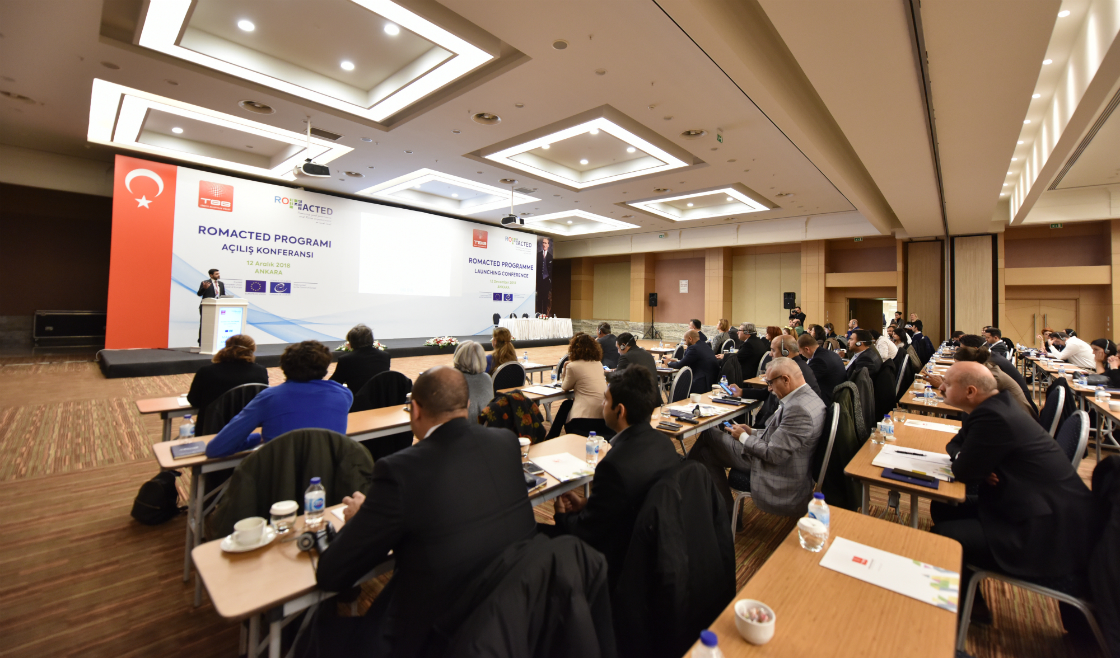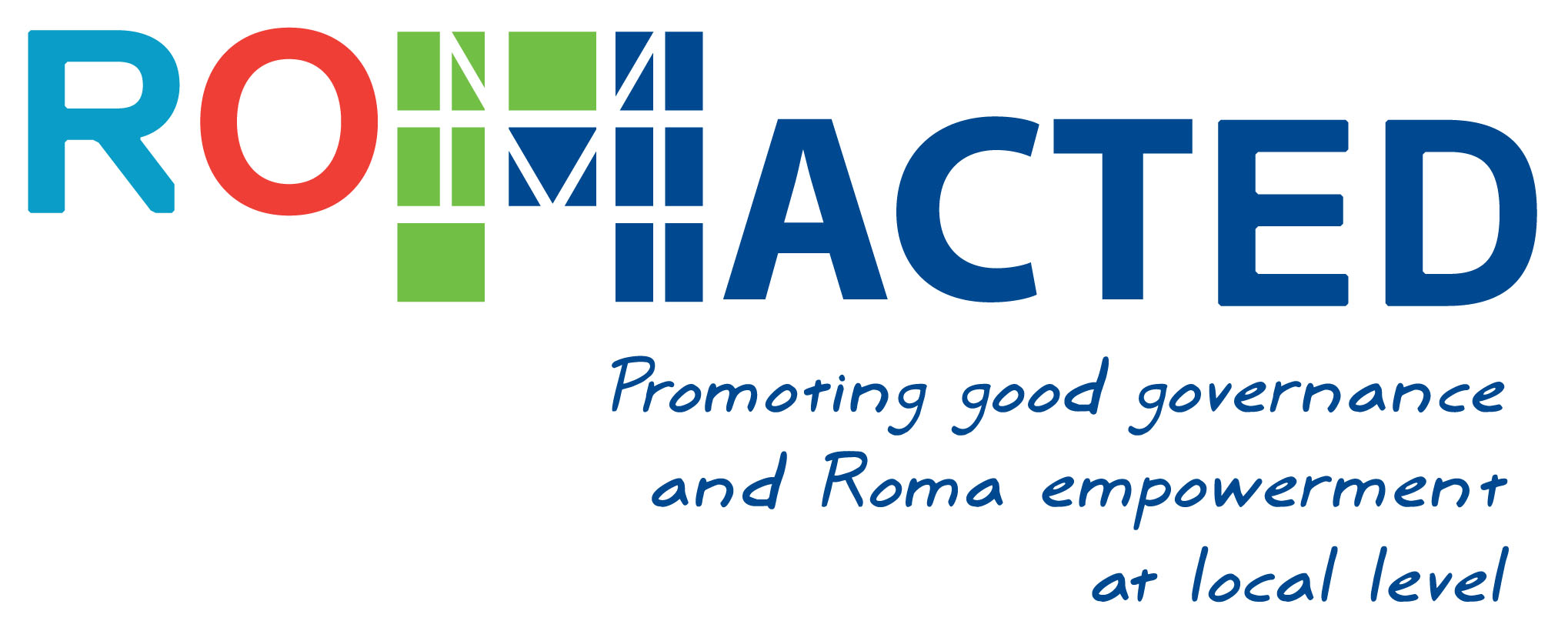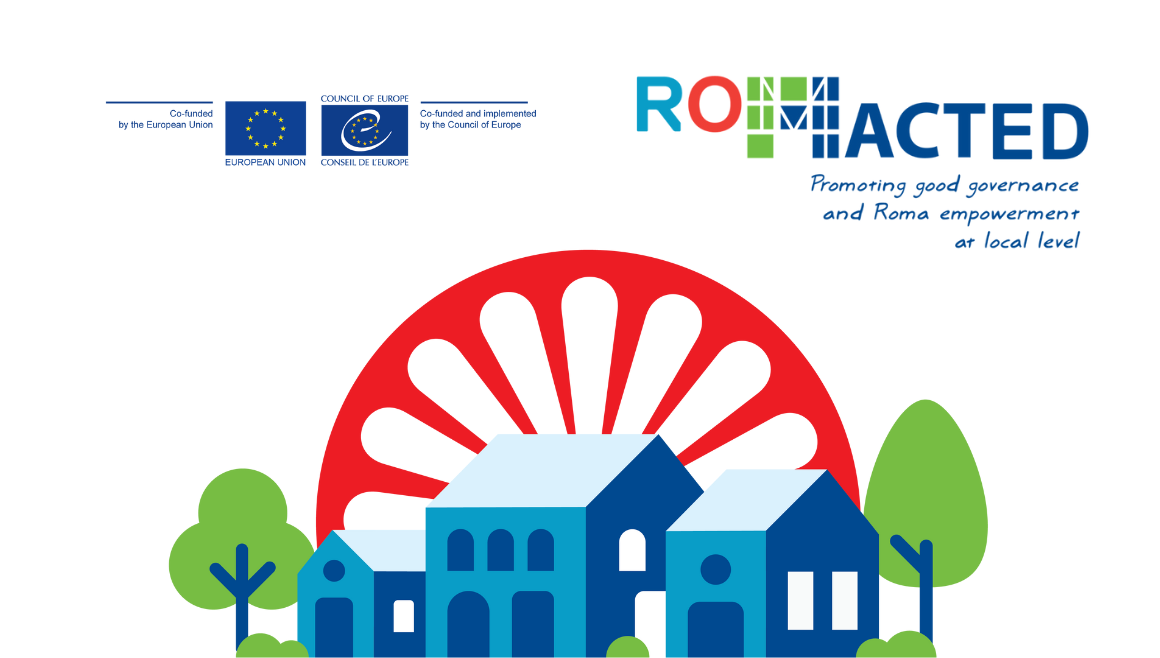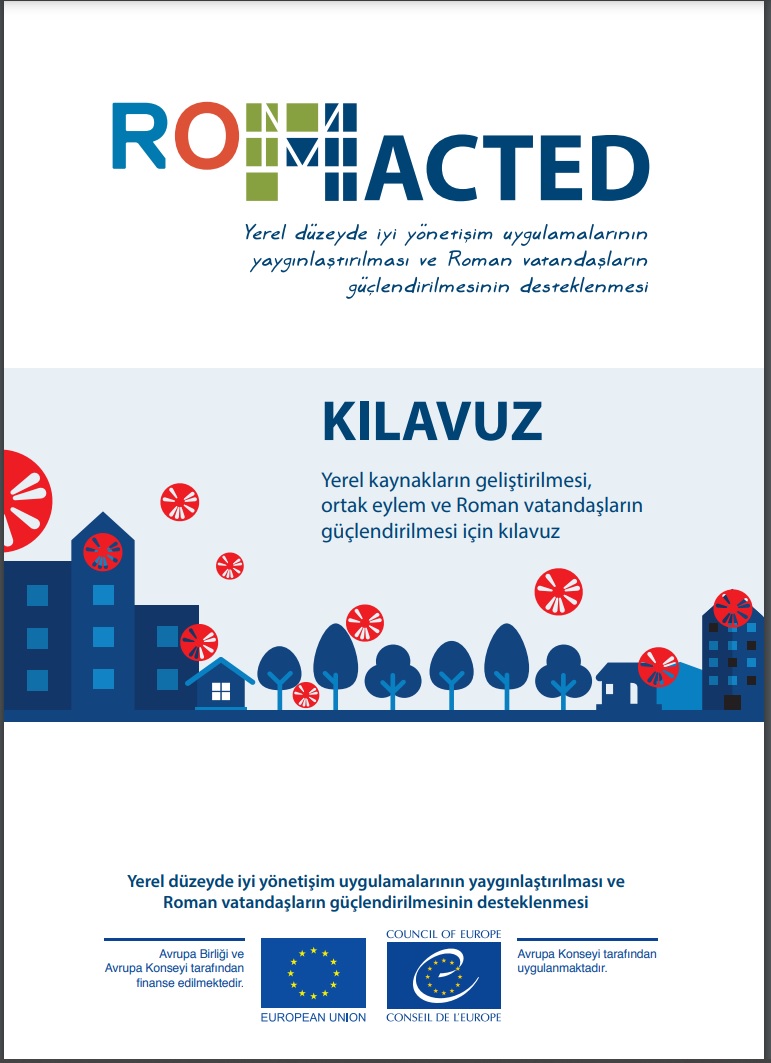Türkiye
The European Union/Council of Europe Joint Programme “Promoting good governance and Roma empowerment at local level (ROMACTED II) is a co-operation programme aiming at improving the integration of Roma populations in local communities through enhanced participation in local policymaking and implementation of local actions. The activities of the Programme, following the completion of Phase I of the ROMACTED joint programme in the Western Balkans and Türkiye (2017-2020), are implemented in seven beneficiaries in Albania, Bosnia and Herzegovina, Montenegro, North Macedonia, Serbia, Türkiye, and Kosovo*. ROMACTED II - phase 2 of the Joint Programme - focuses on activities to develop Roma-specific policies with local authorities and to enhance the democratic participation of local Roma communities in the development of these policies.
ROMACTED II was launched in January 2021 and will be implemented until the end of 2024. It includes as partners relevant international and national organisations, both governmental and non-governmental.
The Union of Municipalities of Türkiye (UMT) has agreed to be the institutional partner in Turkey for the programme during the implementation of Phase II. The Memorandum of Understanding between the UMT and the Council of Europe (CoE), signed in October 2021, aims to facilitate the local dissemination and ownership of the programme. Eleven municipalities have been determined based on their expression of interest and the selection criteria of the programme: Akhisar/Manisa, Canik/Samsun, Edirne, Ereğli/Zonguldak, Gaziantep, Gömeç/Balıkesir, İstanbul Metropolitan, Konak/ İzmir, Muratlı/Tekirdağ, Şişli/istanbul and Uzunköprü/Edirne.
In this framework, the pool of consultants and facilitators as well as the Zero Discrimination Association as support organisation, which have all been selected by the Council of Europe through open calls for tenders, are to assist the local implementation of the programme, supported by Council of Europe staff responsible for the project.
The joint programme pursues the following objectives:
- improve local democracy, accountability, inclusiveness, and responsiveness towards Roma citizens and thereby improve the delivery of services,
- build political will and sustained policy engagement of local authorities,
- enhance and contribute to democratic local governance activities of Roma communities.
The target groups of the joint programme are local governments (elected representatives), field units of public administrations and the Roma communities living in the selected municipalities.
The main programme activities include training, coaching, implementation of participatory working cycles, and advocacy. One of the leading principles of the programme methodology is that effective participation in local governance requires the willingness and the ownership of all partners. In that respect, a preliminary mapping, an assessment, a baseline survey, and research are envisaged to take place in each municipality to facilitate the adaptation of the programme and the monitoring of the process and the progress.
The support and active engagement of all stakeholders throughout the four-year implementation period is essential for the successful completion of the programme.
The total available funds for implementation of this joint programme in Türkiye are in the range of 725,000 EUR for the whole 4-year implementation period 2021-2024.
More information on the Joint Programme ROMACTED is available at http://coe-romacted.org.
The ROMACTED methodology is outlined in the ROMACTED Handbook and available in English and in Turkish.
*This designation is without prejudice to positions on status, and is in line with UNSCR 1244/1999 and the ICJ Opinion on the Kosovo Declaration of Independence.
Avrupa Birliği/Avrupa Konseyi ROMACTED II Bölgesel Programı, yerel politika oluşturma ve yerel eylemlerin uygulanmasına daha fazla katılım yoluyla Roman nüfusunun yerel topluluklar ile entegrasyonunu iyileştirmeyi amaçlayan bir iş birliği programdır. Batı Balkanlar ve Türkiye'de (2017-2020) I. Fazını tamamlamış Bölgesel Programın tüm faaliyetleri 7 (yedi) ülkede gerçekleşmektedir: Arnavutluk, Bosna-Hersek, Karadağ, Kuzey Makedonya, Sırbistan, Türkiye, Kosova*. Faz II (ROMACTED II) yerel makamlar ile birlikte Romanlara özgü politikalar geliştirme ve bunlarla ilgili Roman topluluklarının demokratik katılımını güçlendirecek faaliyetlere odaklanmaktadır.
ROMACTED Faz II Ocak 2021 de uygulamaya başlanmıştır ve 48 ay (2021-2024) süresince devam edecektir. Projenin ortakları konuyla ilgili hükümet ve hükümet dışı ulusal ve uluslararası kuruluşlardır.
Faz II kapsamında, Türkiye Belediyeler Birliği’nin (TBB), projenin yerel düzeyde siyasi ortağı olması kararlaştırılmıştır. Ekim 2021 tarihinde TBB ile Avrupa Konseyi (AK) arasında imzalanan Mutabakat Zaptı Programın yerel düzeyde yaygınlaşmasını ve sahiplenilmesini amaçlamaktadır. Programın seçim kriterleri ve belediyelerin programa gösterdikleri ilgi temel alınarak onbir Belediye belirlenmiştir: Akhisar/Manisa, Canik/Samsun, Edirne, Ereğli/Zonguldak, Gaziantep, Gömeç/Balıkesir, İstanbul Büyükşehir, Konak/ İzmir, Muratlı/Tekirdağ, Şişli/İstanbul ve Uzunköprü/Edirne Belediyeleri.
Bu çerçevede, AK’nin açık ihale prosedürleri sonucunda seçilmiş olan uzman ve kolaylaştırıcı havuzu ve yine aynı usulle seçilmiş olan Destek Kuruluş, Sıfır Ayrımcılık Derneği, projeden sorumlu Avrupa Konseyi personelinin desteğiyle programın yerelde yürütülmesine yardımcı olacaklardır
Programın temel hedefleri şu şekilde belirlenmiştir:
- yerel demokrasinin, hesap verebilirliğin, kapsayıcılığın ve Roman vatandaşlara karşı duyarlılığın artırılması ve böylece hizmetlerin sunulmasının iyileştirilmesi,
- yerel makamların siyasi iradesi ve sürekli politika katılımının oluşturulması,
- Roman topluluklarının demokratik anlamda yerel yönetim faaliyetlerini güçlendirmek ve ilgili faaliyetlere katkıda bulunmak
Projenin hedef grupları yerel düzeydeki kamu idareleri (seçilmiş temsilciler ve ilgili yetkililer), bölge kamu kurumları ve seçilen belediye sınırlarında yaşayan Roman topluluklarıdır.
Programın ana faaliyetleri eğitim, koçluk, katılımcı çalışma döngülerinin uygulanması, savunuculuk eylemleri gibi faaliyetleri içermektedir. Programın metodolojisinde önde gelen kılavuz ilkelerden biri, yerel yönetime etkin katılımın ancak partnerlerin adanmışlık ve sahiplenmesi söz konusu olduğunda etkili olabileceğidir. Böylece, programın uyarlanmasını ve sürecin desteklenmesini ve izlenmesini kolaylaştırmak için seçilen her belediyede bir ön haritalama, değerlendirme, temel anket ve araştırma yapılmaktadır.
Programın başarıyla tamamlanması için dört yıllık uygulama dönemi boyunca tüm paydaşların desteği ve aktif katılımı esastır.
Ortak programın 2021-2024 yılları arasında gerçekleşecek 4 yıllık uygulama döneminin tamamı için Türkiye’ye sağlanan fon 725.000 Euro aralığındadır.
ROMACTED Programı hakkında daha fazla bilgiyi http://coe-romacted.org.
ROMACTED metodolojisi, proje web sitesinde bulunan ROMACTED el kitabında özetlenmiştir.
*Bu atama statü konusundaki pozisyonlara halel getirmemektedir ve UNSCR 1244/1999 ve KOSOVA Bağımsızlık Bildirgesi hakkındaki İAİG Görüşü ile uyumludur.
The European Union/Council of Europe Joint Programme “Promoting good governance and Roma empowerment at local level (ROMACTED II)” is the natural follow-up to the implementation of Phase I of the ROMACTED Programme in the Western Balkans and Türkiye (2017-2020), which will serve to consolidate and expand efforts to improve the integration of Roma populations in local communities through enhanced participation in local policymaking and implementation of local actions. ROMACTED II will continue to assist the local authorities to integrate Roma specific dimensions/measures into the mainstream local policies, action plans related to these policies, budgets, and public service delivery, thereby enhancing democratic participation and empowerment of local Roma communities.
The project pursues the following objectives: improving local democracy, accountability, inclusiveness, and responsiveness towards Roma citizens and thereby improved delivery of services.
The Programme is designed to build up political will and sustained policy engagement of local authorities, to enhance democratic local governance and to build up capacity and stimulate the empowerment of local Roma communities to contribute to the design, implementation and monitoring of plans and projects concerning them through the following outcomes:
- empowering Roma community - on the individual level (assisting people to practice their basic rights and to expand their capacity and skills), as well as on the community level (assisting people to get organised to voice out their interests around community problem solving, and;
- improving and expanding the institutions’ commitment, capacities, knowledge and skills in working for Roma inclusion, putting in practice the concepts of good governance;
- contributing to preparation of the local development actions that aim to improve the quality of life for Roma and to reduce the gap between Roma and non-Roma, including in relation to mitigating the effects of the COVID-19 pandemic.
Specific actions include assisting the local authorities to integrate Roma specific dimensions/measures into the mainstream local policies, budgets, and public service delivery on their agenda, while enhancing the participation of the Roma citizens in the design, implementation and monitoring of those policies and projects.
The target groups of the project are local public administrations (the elected representatives and relevant officials) and the Roma communities from the selected municipalities. They are also the first short-term beneficiary groups of the project. Overall, the project will target over 70 municipalities in the region. The mid- to long-term beneficiaries are the Roma population and the population of the municipality in general.
The programme’s activities (training, coaching, implementation of participatory working cycles, advocacy actions, etc. during key moments of the municipal cycles: planning, budgeting, local decisions, projects, etc.) are meant to support strategic interventions which influence the attitudes, behaviour, and actions of the local actors.
One of the leading guidelines in the methodology of the programme is that participation in local governance can only be effective if it is context appropriate. Thus, a preliminary mapping, assessment, baseline survey and research are done in each selected municipality to facilitate the adaptation of the programme and its support and monitoring of the process.
Project partners include the European Union, other international organisations, governmental and non-governmental institutions, and organisations dealing with Roma issues.
Programme activities will take place in 7 (seven) Beneficiaries: Albania, Bosnia and Herzegovina, Montenegro, North Macedonia, Serbia, Türkiye, Kosovo.
In each Beneficiary, a support organisation (hereafter “Support Organisation”) is responsible for the implementation of the ROMACTED Programme at local level, assisting the relevant Support Team consisting of a Focal Point [FP] (proposed by the Support Organisation), a Financial Support Assistant [FSA] (also proposed by the Support Organisation), and Facilitators who, together with the support of other Thematic consultants, will work as a team towards achieving the objectives of the ROMACTED methodology. The Support Team will work in close co-operation with, and under the monitoring of, the Project staff based in the CoE field office in each Beneficiary.
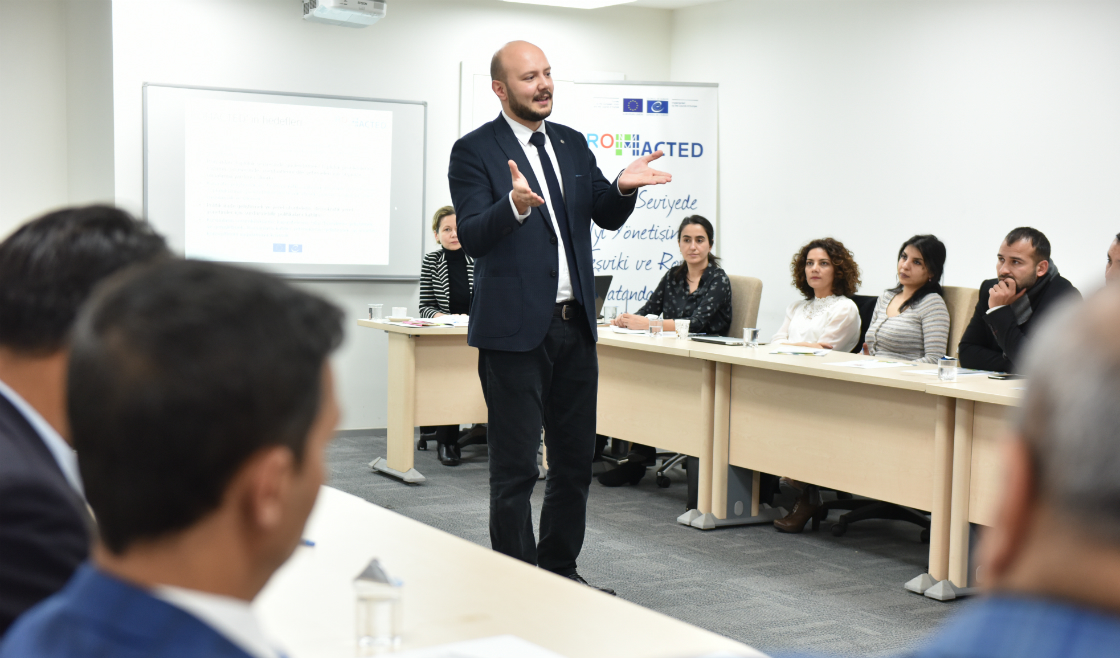
Workshop on Participatory Local Strategic Planning
Ankara
10-11 December 2018


